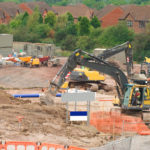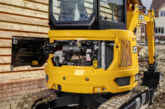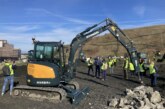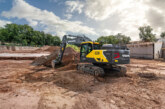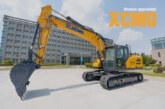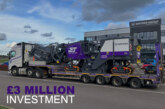The Contractors Health and Safety Assessment Scheme (CHAS) discusses how stricter standards governing emissions from non-road mobile machinery (NRMM) can be met with ease.
New legislation to monitor and reduce emissions from diesel and diesel hybrid NRMM’s in specific London areas was brought in at the beginning of 2020 and its geographic scope was due to be widened in September. However, in recognition of the challenges caused by Covid-19, and the disruption to supply chains making it more difficult for contractors to prepare their machinery for the new standards, construction firms will be able to apply for a six-month exemption from new Low Emission Zone standards for polluting diggers and bulldozers. The exemption period from the new Low Emission Zone will run from September 2020 until the end of February 2021. Existing standards, in place since 2015, will continue to apply.
Tackling emissions from London’s construction sites is a key part of the Mayor’s plans to tackle London’s toxic air. Machinery such as diggers and bulldozers are currently responsible for 15 per cent of local PM2.5 emissions in London and the fifth largest source of nitrogen oxides (NOx). Despite that hiatus the direction of travel is clearly defined. At present the emission controls govern larger plant in the 37 to 560 KW category and don’t cover fixed output generators and similar non-mobile plant but they are set to get progressively tighter over time and by 1st January 2040 only zero emission machinery will be allowed.
Across the rest of the UK, the lack of a national register makes regulating NRMM difficult but Defra is currently reviewing data on both machinery use and lifespan and has commissioned a research project on NRMM emission controls.
All legislation presents a challenge to those operating in the sector and the extra work load is rarely welcomed. At present many construction companies task site managers with keeping records and checking individual plant complies and this often involves a lot of paperwork. If the inspector calls it can be difficult to access this information which needs to include inspection certificates and service schedules for each machine. If it is found that a certain machine has slipped through the net it may be ‘red carded’ and sent off site which can be very costly.
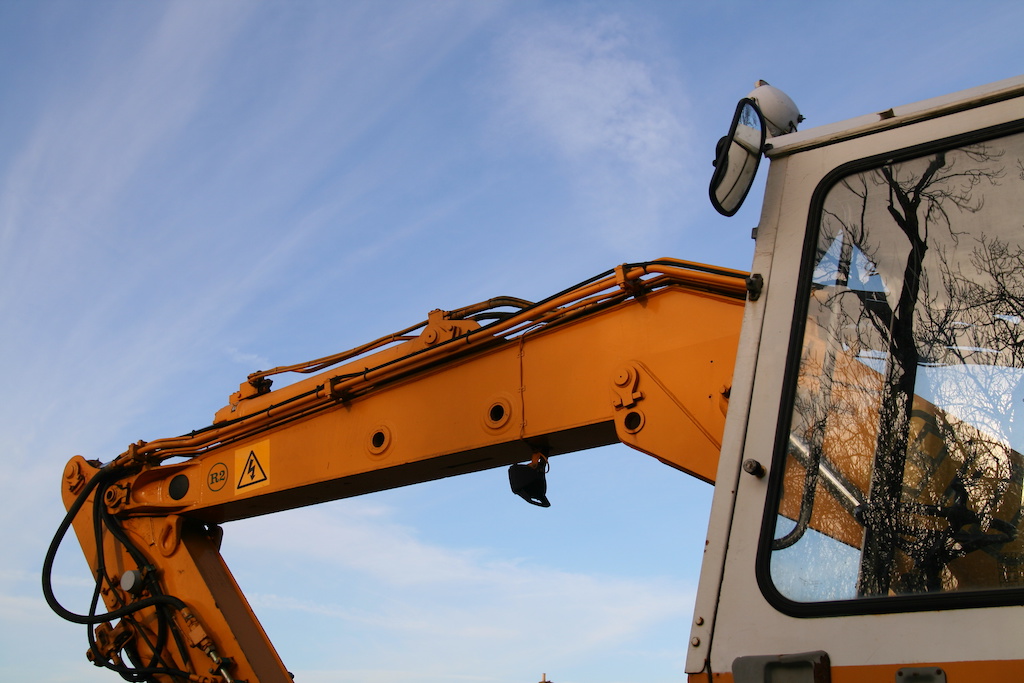
That’s why CHAS has introduced a plant and machinery management tool, named CHAS Plant, which enables simplified tracking of all aspects of plant maintenance and compliance, including the all-important emissions data, test results and certification for each machine.
Ian McKinnon, MD of CHAS explains: “Traditionally many contractors have grappled with manual or disparate electronic systems to keep track of plant and equipment which has made auditing challenging and carried with it the anxiety of finding incomplete or inaccurate records. CHAS Plant transforms this process enabling anyone to access up-to-date and comprehensive records in an instant while revolutionising maintenance and workflow.”
Apart from making sure the contractor complies with the legislation CHAS Plant also gives a snapshot of all the plant and machinery on the books including records of maintenance and insurance as well as operator checks. These can be accessed by anyone who is given authorisation and, in the case of inspections, it can provide the inspectors with upfront information before they leave the office. It is then just a matter of checking vehicle ID plates and making sure no rogue machines are operating. It is worth noting that the emissions control does not cover mobile cranes, which are usually only on site for a limited period.
CHAS Plant also streamlines asset management. If there is a problem or a fault with the machine CHAS Plant can be set to notify all the relevant parties so the engineer is alerted and a site visit arranged with minimal or no downtime.
If, as seems likely, the new NRMM legislation is a success in London then it will almost certainly be adopted by other towns and cities across Britain. It can’t be denied that in the light of what we now know about long-term health damage, saving people from the dangers of pollution has to be a priority. To this end the Considerate Construction Scheme has been running a national campaign to combat pollution in construction and is encouraging members to voluntarily address this issue.
Considerate Constructors Scheme Chief Executive, Edward Hardy has previously said: “A staggering 40,000 deaths a year are linked to air pollution in the UK, and many people are suffering long-term health problems caused by poor air quality. As construction is a significant contributor to air pollution, it is essential for the industry to put measures in place to clean up our air by working together to reduce our impact on air quality.”
It is clearly something that every socially responsible person can aspire to, but sometimes legislation can feel like yet another hoop for construction companies and plant hire firms to jump through therefore, as its scope widens, solutions such as CHAS Plant will be an important tool in making sure the changes are as pain free as possible.
 About CHAS
About CHAS
CHAS (The Contractors Health and Safety Assessment Scheme) is the UK’s leading provider of risk prevention, compliance and supply chain management services for clients and contractors. CHAS works in partnership with industry bodies and independent organisations to provide a single solution for accreditation, risk assessment, supply chain management and industry training.
CHAS’s aim is simple:
•︎ To standardise and simplify health and safety assessment for contractors
•︎ To support organisations in efficiently managing their supply chains
•︎ To deliver a full suite of supply chain management tools.

